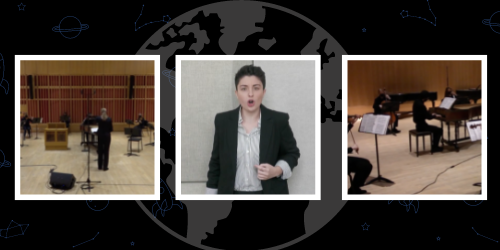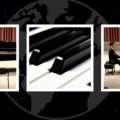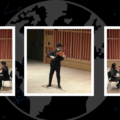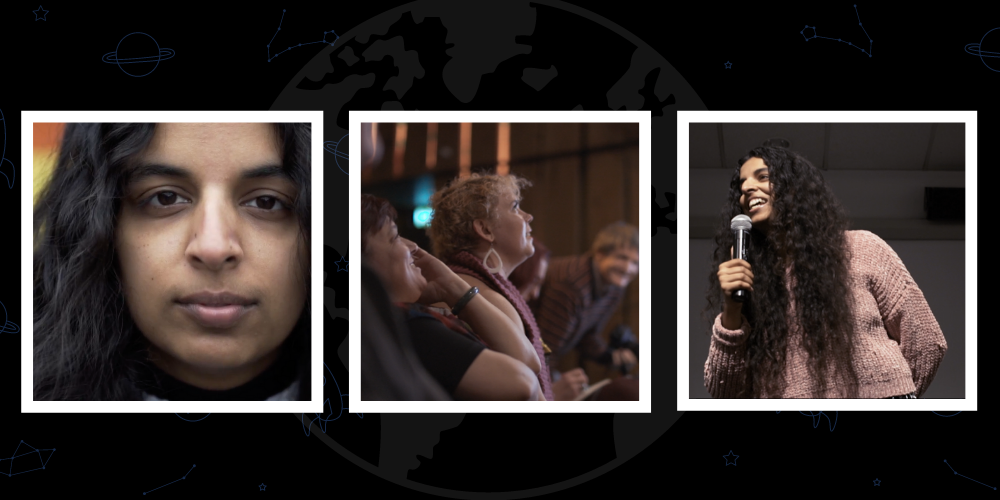今月の観客は上映できます インクルード Handel Aria Project. This film is curated for the Planet Classroom Network by Bard College Conservatory of Music
ザ· Handel Aria Project presents works by the great George Frideric Handel performed by the Bard Baroque Ensemble and Graduate Vocal Arts Program.
Talented Bard artists take us on a journey of Handel’s most exquisite music for voice and instruments. The idea for the project was developed following a study of three major operatic masterpieces from the composer during the pandemic. Viewers are invited to tune in and allow themselves to be transported through a performance of brilliant works from arguably the peak of Handel’s creative career.
教育のためのグローバル検索 is pleased to welcome from Bard Conservatory, Conductor and keyboardist Renee Louprette and Concertmaster Ana Aparicio.
Welcome ladies. Please tell us why George Frideric Handel’s works were selected to be highlighted by the 14 solo vocalists in this project?
Renee: 4月中 2020, during the height of the pandemic, I was invited by the Bard Graduate Vocal Arts Program leadership (Stephanie Blythe,
芸術監督, and Kayo Iwama, 副所長) to work with the VAP students on the art of ornamentation in operas by Baroque composer George Frideric Handel. As part of that project (which took place online), VAP students prepared arias and recitatives from a select group of Handel’s operas: Giulio Cesare, Rodelinda, そして Alcina, and I coached them through the process of exploring and applying ornamentation (musical decoration added to the originally composed vocal lines) in these works. The following academic year, while we were still navigating the challenges of making music together during a pandemic, we decided to take this project a step further. I proposed that we present performances of arias from two of the three operas: Giulio Cesare そして Rodelinda, to be accompanied by the Bard Baroque Ensemble. The singers then selected excerpts from these operas that would best fit their vocal range and tonal qualities. VAP faculty members Stephanie Blythe and Lucy Fitz Gibbon also offered to join in the project, contributing their own performances alongside those of the students. Thus we arrived at this attractive selection of pieces that showcase these artists at their best, while also providing an overview of the dramatic proceedings of these operas, in lieu of presenting them as complete works. The entire presentation is framed by instrumental works by Handel – one of his organ concertos to open and end the program, and a trio sonata placed in between the two operas – performed by the student members of the Baroque Ensemble. VAP students Sarah Rauch and Maximillian Jansen also offer summaries and insights into the libretti of the two operas.
How important is it to open our minds to different kinds of music, especially classical?
Renee: Music endures and transcends time and place when it remains emotionally relevant, that is to say, when it reflects the universality of the human experience. 愛, doubt, jealousy, elation, anger, despair – these are emotions that all of us as human beings experience throughout the arduous journey of life. Handel’s operatic music, 特に, is lyrical and expressive while also exemplifying contrapuntal techniques refined by composers during the height of the Baroque era. These techniques help to define the organization and solid architectural construction of Handel’s music. We might compare such music to a painting that immediately captures our attention in a vivid, visceral way, while it reveals the most subtle and refined technical aspects of painting – techniques which expert painters still endeavor to master in our time. Immersion into the sonic world of Handel, as an example of one composer whose music has remained popular for centuries, offers us an escape from the mundane and challenging aspects of our everyday lives. We might say that music of such potency serves to cleanse the soul.
良い: Being exposed to classical music, especially from a young age, makes you appreciate the past and present differently. Classical music is an alive and open door for the people who were before us, our roots. We live in a time where technology allows the creation of different music styles that can be perceived far differently from the classical music style. Combining contemporary music with classical music is a balanced connection with the past, present, and future. It enriches us and opens our minds to understand the transitions that societies have experienced for centuries. 今, we can use technology to expand access to classical music to people in the most remote areas of the world. I think that is amazing, and it breaks with the paradigm that classical music is only for a particular social class.
Can you share an interesting story or personal insight from your work and the creative process of bringing this production to life?
Renee: We recorded the Handel Aria Project at a point during the Covid pandemic when it was still unsafe to be in close proximity while making music. The musicians in the orchestra needed to be seated at a safe distance from one another, wearing masks, while the singers needed to be situated in an entirely separate room! We were not linked with one another visually; we could only hear one another through speakers. Somehow we were able to bridge this distance and capture performances that appear uninhibited and intimate, but it certainly was a challenging and unusual experience for everyone involved!
良い: I remember we had a workshop with a dance professor specializing in baroque dances. She explained and showed us the dances we performed with the right style. It was very revealing for me. I was shocked because I used to see the titles of the pieces but did not really pay attention to what they could mean. As a visual person, seeing the differences between dances gave me a better understanding of the music we were playing, and I think the audience can see it in the project’s final result.
What do you hope audiences leave with after seeing the Handel Aria Project?
Renee: I hope that listeners who experience the Handel Aria Project will come away with an appreciation for the steadfast spirit of musicians who had to creatively explore ways to continue their art during a time that was severely limiting and discouraging. It inspired me to witness how the artists involved in this project rose to the occasion, and through their enthusiasm and commitment, bridged many distances imposed by the pandemic. I hope that listeners will be moved by these performances and curious to explore more of Giulio Cesare, Rodelinda, or other vocal works by Handel. そして最後に, I hope that some of our audience members may be inspired to follow the budding careers of the young musicians featured in this program as they leave Bard College and continue to pursue their artistic goals and dreams.
良い: We worked hard to interpret in the best possible way what Handel composed. In this process, we learned a lot. The experience of sharing the stage with excellent musicians, amazing professors and making good music. When you listen to this project, I hope you can travel for a few minutes to the past and enjoy the best of that time in history. I believe everything is possible, no matter the adversity we face – covid, 分離, restriction – when we work together as a team. This project was possible thanks to an extraordinary group of musicians, 教授, and staff that put first the value of sharing an experience that could bring happiness to others during difficult times.
Thank you Renee and Ana!
C.M. Rubin with Renee Louprette and Ana Aparicio
お見逃しなく インクルード Handel Aria Project, now streaming on the Planet Classroom Network. This film is curated for the Planet Classroom Network by Bard College Conservatory of Music







最近のコメント